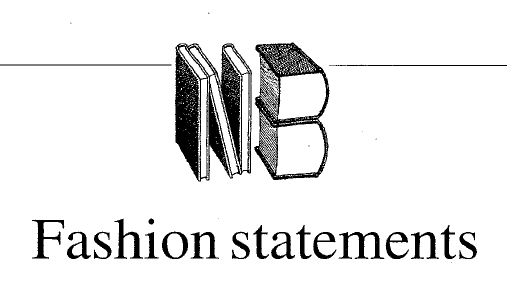
TLS's J. C. on "Attack of the Difficult Poems"

On April 8 and 15, J.C. in his NB column in the TLS took up one of the keynote essays in Attack of the Difficult Poems, “Against National Poetry Month as Such.”
Fashion Statements 
J.C.
From The Times Literary Supplement (April 8, 2011)
The poet Charles Bernstein once declared: "April is the cruellest month for poetry". He was referring to the designated US National Poetry Month, sponsored by what Mr Bernstein called the ARF – Artificial Resuscitation Foundation. We gather this was his own April Fool's joke, but Mr Bernstein finds nothing funny about National Poetry Month. ''The message is: Poetry is good for you", he said with distaste. The exponent of L=A=N=G=U=A=G=E poetry disapproves of the appropriation of verse by the therapy industry, as a medium for uplifting messages. "I want a poetry that's bad for you." It's hard not to admire the sentiment. Bernstein points to an NPM promotional campaign which involved placing poems in new Volkswagen cars to raise drivers' self-esteem.
The special supplement in the April issue of O: The Oprah Magazine takes the feel-good duty of poetry for granted. Among twenty-one "poetic souls" asked to affirm the inspirational power of verse are Bono, Sting, Steven Spielberg, Wynton Marsalis, Demi Moore and Kate Capshaw. All follow the "deeply moved" approach. Capshaw "broke down and wept" the first time she read "Self Portrait" by David Whyte, about the "fierce heat of living". It is left to Mike Tyson to toy with the idea of poetry being bad for you (or for the other guy). "At age twelve, I was introduced to a poem called 'Don't quit'. The last lines are: 'Stick to the fight when you're hardest hit / It's when things seem worst that you must not quit'.”
The closest O comes to acknowledging the Bernsteinian avant-garde is to photograph eight enchanting poetesses in spring fashions, and invite them to yoke together the heterogeneous ideas of wardrobe and work. Anna Moschovakis admires dissonance in poetry, but "when it comes to clothes she prizes ease". Her tiered silk chiffon dress (Candela, $359) "floats over her figure". Stephanie Ann Whited wants to question "the boundaries of self. I like experimenting with new things". Mr Bernstein's ears surely pricked up. Alas, the new things are a "suede miniskirt (H&M, $99) . . . comfortably balanced by a long-sleeved oxford (J. Crew, $78)". No issue of 0 would be complete without the thoughts of Maya Angelou. "Does your humanitarian work influence your writing?" a disciple asks the sage. Of course, mere earthling. "I don't use vulgarity, and I won't have it around' me, and no pejoratives, because those words are meant to dehumanize people." Ms Angelou's poetry is bad for you, but maybe not as Mr Bernstein intended.
***
Sod’s Law
J.C.
FromThe Times Literary Supplement (April 15, 2011)
Since last week, we have been mulling over the remark we quoted from Charles Bernstein on the marketing of poetry as a medium for "uplifting" thoughts. Mr Bernstein was reacting to US National Poetry Month, which comes round each April. "The message is: Poetry is good for you", he said. "I want a poetry that's bad for you."
The rhetorical force of this is clear, even if it doesn't stand much scrutiny. Obviously, Mr Bernstein doesn't want poetry that will cause actual harm; he wants poetry that's bad for you that's really good for you. The Waste Land might be one example. T. S. Eliot would not have been asked to dress in spring fashions for a special poetry supplement of O: The Oprah Magazine in 1922. Some of Ezra Pound's early verse was uplifting and good for you; later he wrote poetry that's bad for you that's really good for you; eventually he wrote poetry that was bad for everybody, especially him. "Howl" used to be poetry that's bad for you, but a recent tame movie, with a cool dude miscast as Allen Ginsberg, turned it into poetry that's good for you (and therefore, in Bernsteinian logic, bad for you). Some of D. H. Lawrence's poetry is bad for you. Some of Robert Frost's is good for you, but more bad for you than it seems. The best of Hugh MacDiarmid is bad-but-good; the worst is plain bad. Sylvia Plath's poetry is bad for you; so is Ted Hughes's Crow.
These brief reflections on Mr Bernstein's dictum have brought home to us how much good sense there is in it (good as in good). The above is intended as a step towards a canon of poetry that's bad for you that's really good for you. Further suggestions would be welcome.